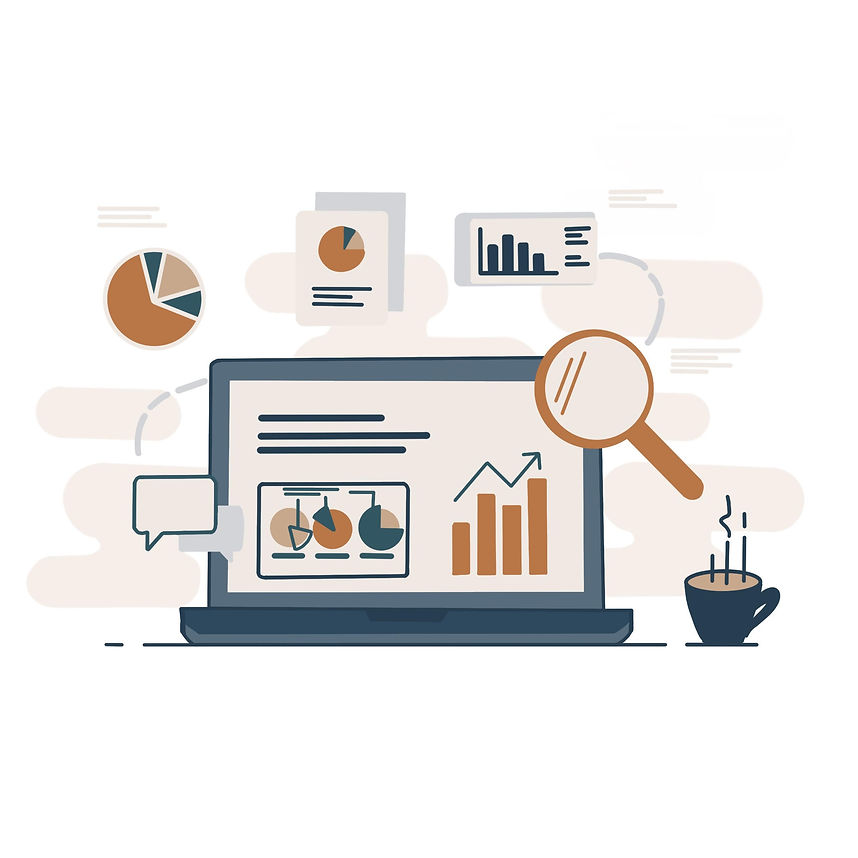Evaluation Design, Implementation, and Analysis
Evaluation is the process of collecting, analyzing, and using data to determine the quality and effectiveness of programs, answer questions, and inform future implementation. This can be the evaluation of programs, community needs, staffing issues, trainings, and workshops. Each evaluation design and implementation differ based on the need and capacity of the client. However, these details and the next steps will be finalized in collaboration with RENI. The evaluation implementation can include collecting data through in-depth interviews, focus groups, observations, surveys, movement-based strategies, text-based methods, and documentation reviews. The method of data collection will be determined based on your needs and will aim to answer the most important questions you are looking to answer.
RENI's overall Evaluation Design, Implementation, and Analysis process includes
Determine evaluation questions and related outcomes
Design relevant evaluation plan and tools
Collect and cleaning data
Analyze data
Disseminate of efforts and results

Process Evaluation
Process evaluation is focused on the implementation process in general. Can be long-term or short-term. The main purpose of this type of evaluation is to examine what worked and what did not work during the implementation process and how different factors influenced the success or failure of a program or service.
Outcome Evaluation
Outcome Evaluation works to assess the outcome of a program or service. This strategy measures whether the program/service had an impact. For example, are we noticing a decrease in health outcomes such as depression as the program aimed?
Impact Evaluation
Impact evaluation is used to measure factors such as behavioral, attitude, knowledge, and awareness change across a period of time.
Cost-Effectiveness Evaluation
A cost-effectiveness evaluation is used to explore if programs and services are running effectively and efficiently according to staffing, finances, and overall capacity.
Quality Assurance
Quality assurance is a method of evaluation utilized to measure and maintain an ongoing level of quality of services and elevate future service delivery and provisions.
Publicly Available Data Review
A data review provides an overview and summary of the current publicly available data about your program’s work. This includes identifying data sources from the municipal to the national level and building an easy to update tracker for you to use.
Some of the Evaluation Design, Implementation, and Analysis services we offer:
Let's schedule a collaborative meeting to create an evaluation work plan. Together we can outline what questions you would like answered through evaluation and what your environment for evaluation is. Based on that, we will work with you to develop a project proposal that will include the timelines, project goals, statement of the work, cost and payment terms, and any other relevant information. Once we have a proposal finalized, we will begin the evaluation process. As community-focused and community-driven evaluators, we like to spend some time with you, your team, and your clients to help us make informed decisions on how to best develop the evaluation tools. For example, if your clients predominantly speak Spanish or Arabic, we will want to ensure we have all the tools also available in Arabic or Spanish
How to get started!
Fill out the Inquiry Form below. We'll reach out to you to set up a call to discuss your goals and obstacles!
